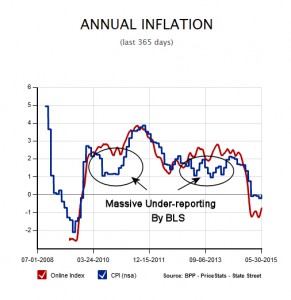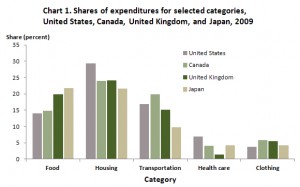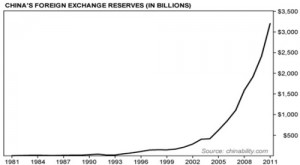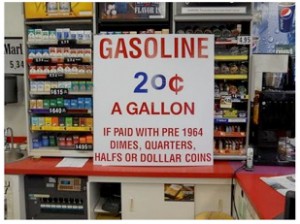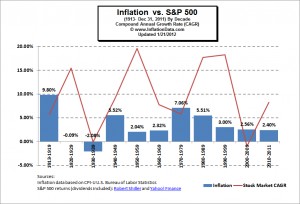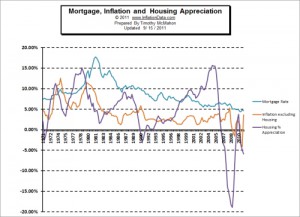Independent Inflation Tracking Numbers Updated February 19, 2016 For some reason people don't seem to trust the government. I can't understand why. Surely the government only has our best interests at heart and wants to take care of us like good parents, and they are just protecting us from ourselves. And of course all politicians are honest, selfless, hard-working civil servants. Right? Well, Okay maybe they don't always have our best interests at heart. And maybe it would benefit the budget if they didn't have to pay so much for cost of living increases but surely they aren't fudging the Consumer Price Index are they? I frequently get emails, and occasionally phone calls, asking … [Read more...]
Cost of Living: How Much of Your Budget Goes to Food?
Cost of Living: Food Knowing what percentage of our cost of living is spent on food is always a good thing to know. We recently published an article by Lynn Carpenter on her Cost of Living- Real Basket of Goods in it she compares the cost of several ordinary food items over the decades. Her weekend meal basket included "one loaf of bread, one pound of coffee, one dozen eggs, three pounds of mid-price beef, one box of Corn Flakes or Cheerios, five pounds of potatoes and one Hershey bar." In this article she determined that over the years a minimum wage earner would have to work 9.25 hours in 1938 to buy this food. But by 1961 a minimum wage earner only had to work 3.75 hours to buy the same … [Read more...]
Inflation Adjusted Gold vs Stocks vs Bonds
Recently our good friends at Casey research published the following chart comparing the inflation adjusted Gold returns to stocks and bonds for the period 1971 through the present. From this chart we can see that as bonds fell during the late 1970's gold rose equivalently and stocks were basically flat. During the 1980's bonds rose and gold fell while while stocks rose slightly. During the 1990's stocks rose sharply gold fell and Bonds were volatile but basically flat to slightly up. During the 2000's gold was up sharply, stocks were volatile and bonds were pretty flat. … [Read more...]
Why (and How) China is Boosting the Price of Gold
The History of Gold Prices (and How We Got Here) To get the full picture of the current price of gold we have to look back nearly 100 years. In the 1800's and early 1900's gold played a key role in international monetary transactions. The gold standard was used to back currencies. Each country determined a fixed exchange rates for its currency, i.e. how many ounces of gold each unit of currency was worth. Trade imbalances (importing more than they exported or vice versa) could rectified via the exchange of gold reserves. A country with a deficit would have to ship gold to the country with an excess. Any country experiencing inflation would lose gold and therefore would have a decrease in … [Read more...]
Gasoline 20 Cents a Gallon?
Many of us aren't old enough to remember Gasoline at 20 cents a gallon. I can remember gas during the 1960's at 29.9 cents a gallon. The last time that gasoline averaged 20 cents a gallon was in 1942. That was during WWII ! But if you know us here at InflationData.com you probably know that we usually talk in inflation adjusted prices. So adjusting for inflation, the price of gas in 1942 would have been $2.78 if you are paying in January 2012 dollars. But that is still a long way away from the average price of Gas in 2011 of $3.48. We track the inflation adjusted price of gasoline based on the annual average price using the Consumer Price Index (CPI) generated by the U.S. Bureau of Labor … [Read more...]
Is There a Correlation Between Inflation and the Stock Market
When inflation is high and commodity prices are rising on what seems like an almost daily basis, have you ever wondered how that might affect the price of stocks? Recently I received the following question: "In the years leading up to the great depression and the great recession, the DJIA nearly quadrupled. My question is... what the cost of living did in these time periods and if there is a correlation between the stock market and the cost of living? John Kelsch" ************ John, Great question! You would think that if all commodities are going up stocks would probably go up as well, since companies produce commodities. But that isn't always the case. Often high … [Read more...]
How Does Inflation Affect You?
When people go the the grocery store and see ever higher prices they know how inflation affects them. But when they are feeling more philosophical they might reason that if all wages and prices increased at the same rate it would all balance out in the end right? Well theoretically yes but in reality it never works that way. Prices of various items all increase at different rates so some people are benefiting while others suffer. Those on fixed incomes suffer the most because the cost of things they are buying increases but their income stays the same. This is where COLA or "Cost Of Living Allowance" comes in it is an adjustment that is made to compensate for the increase in prices due … [Read more...]
Wanna Beat Inflation?
In a recent article entitled Is Gold really a good Inflation Hedge? I showed the history of Gold and how it really was a fear hedge rather than an inflation hedge. Interestingly, I just read an article entitled "Wanna Beat inflation? Forget Commodities!" by newsletter author Dan Ferris. It seems almost like heresy to hear that statement from Dan since he writes commodity and oil-based newsletters. But some of the statistics he presented were very interesting so I thought I would pass them along to you. … [Read more...]
Real Mortgage Rates
What is the Real Mortgage Rate? At InflationData we are constantly talking about "real rates" typically by that we mean the inflation adjusted price. For instance we publish the inflation adjusted price of Oil, the inflation adjusted price of Gold, inflation adjusted stock prices and even the inflation adjusted cost of getting an education. But today when we are talking about Real Mortgage Rates we are not talking simply about the inflation adjusted price of a mortgage. To calculate the real cost of your mortgage you must also take the appreciation of your house into account. So for example if your mortgage rate is 5% but your house appreciates 5% your real mortgage rate is zero. The … [Read more...]
Is a Stock Market Crash Inflationary or Deflationary?
Recently a subscriber asked me the question above, he gave quite correct arguments about how the stock market is "a zero sum game" in other words for every buyer there is a seller, so overall everything should stay in balance. But as I'm sure you know there are at least 3 ways to measure money supply M1, M2 and M3. Each one includes increasingly broad definitions. From just cash equivalents up to including all sorts of time deposits and Government debts. But what they don't include is stock valuations, however if the price of your stocks increases you feel richer and are more likely to spend money from your other accounts because you know if you need the money you can always sell your … [Read more...]

